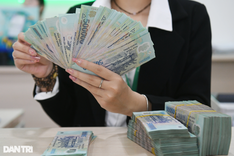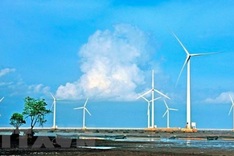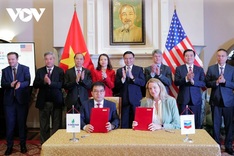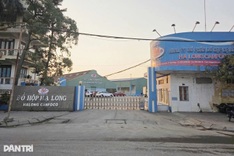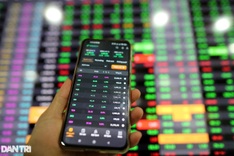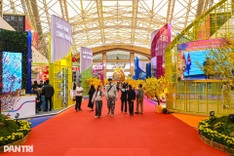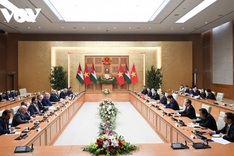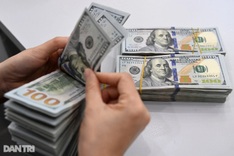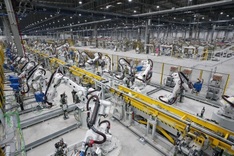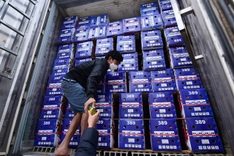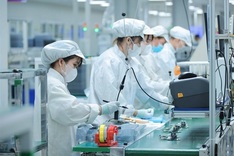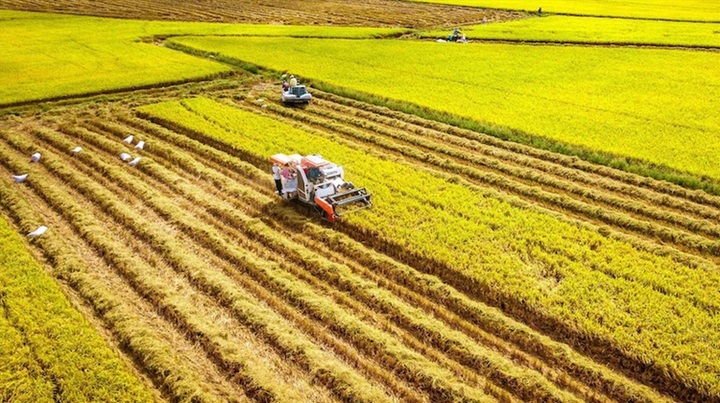
A waste collection site on the outskirts of capital city Hanoi. — VNA/VNS Photo
Building a circular economy should be among Vietnam’s top priorities in the near future, according to economists and environmental experts during a workshop organised by the European Chamber of Commerce in Vietnam (EuroCham Vietnam) and the Ministry of Industry and Trade in HCM City.
Participants said the circular economy is a key trend and a step in making the transition from an old economic model to a greener model, in which sorting, collecting and recycling are key solutions to reduce environmental pollution.
A PR director from Nestle Vietnam, Khuất Quang Hùng said the circular model should extend the lifespan of materials used in production and, at the same time, reduce negative environmental impacts.
He said as resources become limited and global climate changes become ever more severe, the old economic model based on extraction, production, consumption and disposal will exceed the world’s supply capacity as early as 2030.
According to Hùng, there is an urgent need to find a more efficient and sustainable approach to reduce demand for resources, pollution and slow down environmental degradation.
In recent decades, international agreements and mechanisms have been put in place to counter the adverse effects of climate change, many of which are free trade agreements with requirements set for greenhouse emissions and green production. They have formed the foundation to promote the transition to a more environmentally friendly economic model.
He said for many years, Vietnam has been following the old model, which is no longer sustainable. In addition, an increasing number of international trade partners now demand that the country take a more sustainable approach to production.
Meanwhile, the Vietnamese government has gradually introduced policies to promote a greener economic model, which includes the extended producer responsibility (EPR) regulations in the Environmental Protection Law of 2020, effective from January 1, 2024.
The law requires producers and importers to have additional responsibilities in packaging, recycling and collecting waste. Businesses can choose to carry out their recycling activities or, as an alternative, they can choose to contribute to the Vietnam Environmental Protection Fund.
Lê Anh, a director in charge of sustainable development strategy at Duy Tân Recycled Plastic, said the company has been investing in facilities to organise collection and recycling for many years. However, he said it has been difficult to find markets for its products.
Production costs for recycled plastic are typically 20 to 25 per cent higher compared to using virgin plastic and the price has made their products only suitable for export until recently. However, since the EPR came into effect, demand for recycled plastic bottles from domestic businesses has increased significantly. The capacity of the recycling plant quadrupled, and domestic consumption now accounts for 50 per cent of output.
"Recycling plastic bottles and packaging in Vietnam has been around for 40 to 50 years, but mainly in a rudimentary form. As businesses invest in modern factories and technology, the recycling industry is slowly taking shape,” he said.
The biggest hurdle, according to Anh, is sorting and collection. Currently, out of 100 tonnes of plastic bottles collected, Vietnam can recycle just 60 to 65 per cent. Meanwhile, the rate of recycling is much higher in developed countries, at 80 per cent or greater.
Commercial Counselor at the Norwegian Embassy in Vietnam, Karin Greve, said the Southeast Asian economy’s implementation of EPR is a step in the right direction, but to maximise its effectiveness, priority should be given to raising awareness and helping communities properly sort waste at the source.
For waste collection and recycling activities, a network linking businesses and organisations in Vietnam should be established to coordinate operations smoothly. The recycling industry in Vietnam is still new and the government should implement supportive policies to encourage more businesses to join this field, he said.


